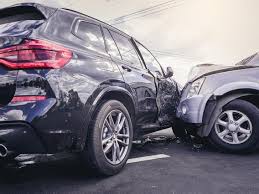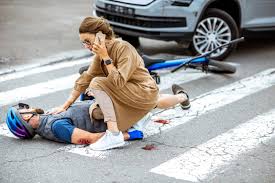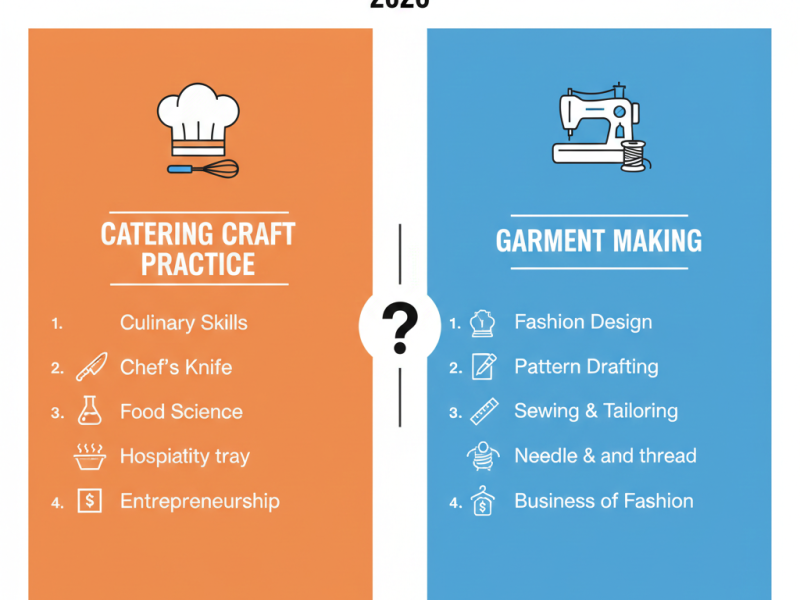When insurance does not cover all the expenses of a traffic accident, you have a problem.
You probably know that “the victim must be fully compensated.”
The Law says so.
But that is the theory, because in practice this does not happen and the injured party has to struggle to try to ” convince” the insurance company that it should pay all of its expenses.
What expenses are those?
How do they justify themselves?
Why might an insurer refuse to pay them?
What to do when this part of the compensation is not included in their offer ?
In this post we clarify these and other doubts related to your claim, and we explain everything you need to know to ensure that these expenses are paid in your compensation.
Remember that we can help you make a claim without paying a single euro in advance, because in a traffic accident you can have free legal help (even if your insurance company doesn’t like it).
Why might you find that insurance does not cover all the expenses of an accident?
We’re not going to fool you.
There will always be “something” that the insurance company does NOT want to pay you for .
Travel expenses…
Some pharmacy bills…
Paying for a diagnostic test…
It is clear that you are not claiming anything that does not belong to you.
You are a non-guilty victim* and you have the right by law to be compensated for all the concepts included in the Traffic Scale .
(*Remember that you will not be able to make a claim if you are solely at fault for the accident, although fault is another story to consider, you already know that you may not be responsible even if the insurance says otherwise ).
Expenses are one of these concepts, and are included in the so-called “ patrimonial damage ”, a part of your compensation.
Not all injured parties will have expenses to claim.
But in most accidents there is always some kind of expense that the victim has to advance and pay out of pocket.
Things get much more complicated when you claim compensation for serious injuries .
In these cases there are usually many more expenses, some of which sometimes cannot be paid by the victim or their families, such as care in specialized hospitals for seriously injured people , which are usually very expensive.
You will find a thousand reasons for the insurance company to justify its refusal to pay your accident expenses.
Sometimes they pay part of it, and randomly decide not to pay other expenses, no matter how justified they are.
This does not mean that you should give up on them, because if they are well documented they should be paid to you.
The main reasons why an insurance company disputes the payment of the expenses of an accident

Over the more than 25 years that we have been working as lawyers specializing in traffic accidents, we have seen all kinds of excuses and supposed reasons for not paying the costs of an accident to the victim.
These are the most frequently repeated ones:
“I will NOT pay you any expenses (or anything) because you are guilty of the accident”
First excuse, when they deny responsibility.
This justification is generic, it affects the entire compensation, which the company refuses to pay because it considers you guilty.
When you are not paid compensation for a traffic accident, you will most likely have to resort to legal action (don’t worry, because with legal help you will get paid).
“I will NOT pay the expenses you claim because they are not necessary”
The insurer considers that it was “not necessary” to make the disbursements you claim.
This is an absolutely subjective assessment by the company’s attorney or solicitor who assesses, to the best of his knowledge, certain expenses you have incurred.
For example, you claim taxi bills to travel to the doctor because you are on sick leave, you cannot drive or you cannot move and no one can take you either.
Most likely the insurance company will tell you that “ you should have used public transport, which is cheaper”.
There are many cases, but it is clear that if you are not in a position to go to the doctors and appointments on your own and you have to resort to this type of transport, they should pay for it.
“I will NOT pay your accident expenses because you have not properly justified them”
When we talk about justifying, it is not just about providing invoices or receipts that prove the expense.
We are also referring to the insurance company arguing with you whether or not they are applicable .
For example, imagine that you submit a bill for 200 euros for an MRI scan that you had done privately.
The insurer says that it will not pay for this expense because you do not have a medical report indicating the convenience of having this test done, or prescribing it for you.
That is to say, they are not going to pay for a medical test that you do on your own because you want to clear up any doubts about the extent of your injury.
Another example of a real case we had was the payment of dental expenses for a hit-and-run victim who lost several teeth in the accident.
It is clear that this is a “justified” expense.
The insurer disputed half of the budget, acknowledging its obligation to pay part of it, but refusing to pay other items that it considered unjustified.
In other words, ” I will pay for the replacement of the tooth you have lost, but I will not pay for the reconstruction of a tooth that has broken a little .”
Needless to say, we filed a claim in court and the company was ordered to pay the entire dentist’s bill .
“I am NOT paying you because there is a conflict of interest (although I am not going to tell you that)”
Conflict of interest means that both vehicles involved in the accident have the same insurance company.
This means that the same company has to pay all the expenses generated by the accident.
As you can imagine, he will try to cut corners wherever he can to pay as little as possible .
Expenses are the perfect excuse to reduce compensation payments.
Finally, two more great excuses why insurance does not cover the costs of the traffic accident you have had:
➡️ Pay less : This is the ABC of claims for damages from companies, and the reason why their motivated offers are always lower than what they should pay you.
➡️ Very high costs : in the most serious accidents, the costs multiply and usually amount to very high amounts. It is not that they do not pay, but that they always pay at a low level, excluding items that they should cover.
What is usually discussed when insurance does not cover all traffic accident expenses
As a victim of an accident, you may have a wide range of expenses, which may be related to injuries, material damage, or financial loss.
You may have problems assuming part or all of these expenses , depending on the case and the company.
Insurance does not cover all expenses arising from injuries

Most accidents result in injuries to the victim .
Payment for injuries includes the time it took you to recover, any after-effects you may have and other correction factors included in the Traffic Scale.
To cure injuries, it is necessary to undergo treatment, visit specialists in the damage suffered and perform diagnostic tests to determine the extent of the damage suffered.
In this sense, having a minor accident is not the same as having a serious one, although in both cases you will have expenses.
These are the most common (and discussed):
➯ Rehabilitation .
You can have it paid by the insurer under the Health Care Agreements, in which case you can receive treatment at no cost.
But you can also decide to do it at your trusted physiotherapist or at a private clinic.
In these cases, you must pay the cost of the invoices in advance and then claim the amount from the insurer.
This is where you may get into trouble.
They may pay part and not part because they consider that X number of sessions was enough and you did not need to give so much treatment.
This can happen to you when you claim compensation for a cervical sprain .
In these cases, companies apply statistical criteria and have a kind of “ limit” of sessions after which they consider that you have already recovered.
But it may happen that you need more rehabilitation because you have, for example, a previous cervical pathology.
Well, the insurance company can decide to pay for the private sessions that they consider you should have, and not pay for the rest because they consider them unnecessary.
Another common scenario is that you have needed two rehabilitation cycles and for whatever reason you have had them in different centers, providing invoices from both clinics.
Or, for example, that your rehabilitation has been “cut off” through insurance and since you have not done well, you decide to do another cycle of rehabilitation privately .
The company does not usually take this second cycle into account when assessing your healing time, considering that you have stabilized after being discharged from the first rehabilitation, and will not pay the bill for the private treatment.
➯ Diagnostic tests
Many victims choose to pay out of pocket for a specific test to determine the extent of a particular injury.
Waiting for an MRI or ultrasound at a public hospital means wasting months on waiting lists.
And due to health agreements, it is difficult for an insurance company to agree to pay for one of these tests.
Paying for it at a private center is usually the best solution to find out what you have as soon as possible and to treat you as soon as possible.
However, insurers often dispute the merits of paying for these tests , especially if it is not proven that they were necessary, and of course, prescribed by a doctor.
Our recommendation is that you always prove the need to take the test and that this is recorded in writing in your doctors’ reports.
➯ Invoices from healthcare professionals specializing in the injury suffered
There are accidents where the victim suffers injuries that are a little out of the “ordinary.”
For example, the case we discussed of the loss of teeth in a car accident.
Another case would be having to go to an ophthalmologist for eye injuries .
It is quite common to have to rely on specialists when there is severe personal injury, such as spinal cord injuries .
When it is necessary to visit these more specific medical professionals, it is usually usual to do so privately .
And these doctors issue the invoice for the consultations, visits or whatever they have had to do, an expense that must be claimed.
The insurance does not cover all the expenses for material damages
This does not only include damage to your vehicle, motorcycle or bicycle , which of course is claimed.
You may encounter problems in more specific cases, such as an accident involving an electric scooter , where the damage to the scooter must be assessed and companies do not always want to pay for the repair costs.
But, in addition, there are all those “ other expenses ” that the insurance companies object to paying, claiming that “ it is not proven that they were damaged in the accident .”
We are referring to all those objects that are damaged as a result of the accident.
For example, in a car or bus accident you are carrying luggage and the suitcases and everything inside them are lost in the accident.
Your glasses, cell phone, computer, or even your motorcycle or bicycle helmet can also be damaged .
If you’ve been hit by a car, your clothes are likely to be ruined, either by the accident itself or because doctors cut them up to treat a fracture or other injury that requires you to stay put.
Everything counts, and whether the expense is greater or lesser, the victim does not have to assume it, it is the insurer who has to pay for it.
To do this, it is essential to take photos of the objects and provide repair estimates or invoices if you are paying the cost and are going to claim it later.
The insurance does not cover all the expenses in terms of consequential damages (property damages)
Emerging damage is a concept included in property damage that refers specifically to the expenses you have incurred as a result of the accident.
Many victims do not know how to calculate consequential damages , which can amount to many thousands of euros in the most serious injury cases.
Some examples of expenses that are consequential damages :
➡️Medications (always prescribed by the doctor).
➡️Rent or purchase of crutches, neck braces, wheelchairs.
➡️Taxis, VTC, gasoline, bus, all travel expenses to go to doctors or receive treatment.
➡️Private rehabilitation expenses.
➡️Medical and diagnostic tests such as ultrasounds or MRIs.
In short, you can claim any expense directly related to the accident , as long as it is properly documented.
Emerging damages take on special importance in the case of seriously injured people , because the Scale introduces a series of items and concepts to be claimed that are very complicated to assess and calculate.
For example:
➡️Expenses that the victim will need for rehabilitation or medical assistance in the future , which must be assessed so that the victim is covered for life.
➡️Expenses for replacing prostheses in cases of amputations , because prostheses must be replaced from time to time and this must be paid for by the insurer.
➡️Expenses arising from adapting the injured person’s home to their new situation (for example, so that they can move around in a wheelchair).
➡️Expenses to facilitate the victim’s mobility (for example, an adapted vehicle if he or she is in a wheelchair).
➡️Expenses for permanent assistance from third parties (for example, in a coma, the victim needs help for life).
All of these amounts increase the amount of compensation and are usually undervalued by companies, paying only a part or minimizing the expense .
What to do when insurance does not cover all the costs of a traffic accident
We already know that insurance companies will have problems paying the expenses derived from an accident (part or all).
Normally, they send the motivated offer of payment where all the concepts to be paid must be broken down one by one.
That’s where your lawyer (and yes, you always need a lawyer ) evaluates what they are offering you and what they are not paying you.
From there the options are:
➯ Negotiate with the insurer to try to increase the offer and include the expenses that they are not paying you.
➯If the company maintains its position and does not want to pay them, file a lawsuit in court to claim them.
BE CAREFUL with the subject of the test .
If it is already difficult for an insurer to pay these expenses, claiming them is an impossible task if they are not well documented.
Pay special attention to medical expenses, because you will not be paid for anything that is not prescribed and justified by a doctor as something necessary for your healing process.


